Success in Pursuit of Global Pathways
27 Nov 2023
BBSG Parent Academy stands out as one of the avenues through which we maintain effective Parent-school communication. Inviting our own parents or esteemed professionals from diverse fields to impart their experience in education, the Parent Academy serves as an engaging event where parents will gain insights into the latest trends and exchange ideas in education and parenting, as well as inspiration for their children’s pathways in exploring the '100 possibilities' for their future success.
In the first session of this Academic Year, Jennifer Ma, Executive Advisor of BBSG, delved into the topic of 'QUEST Programme' for G6-G8 students and their parents.
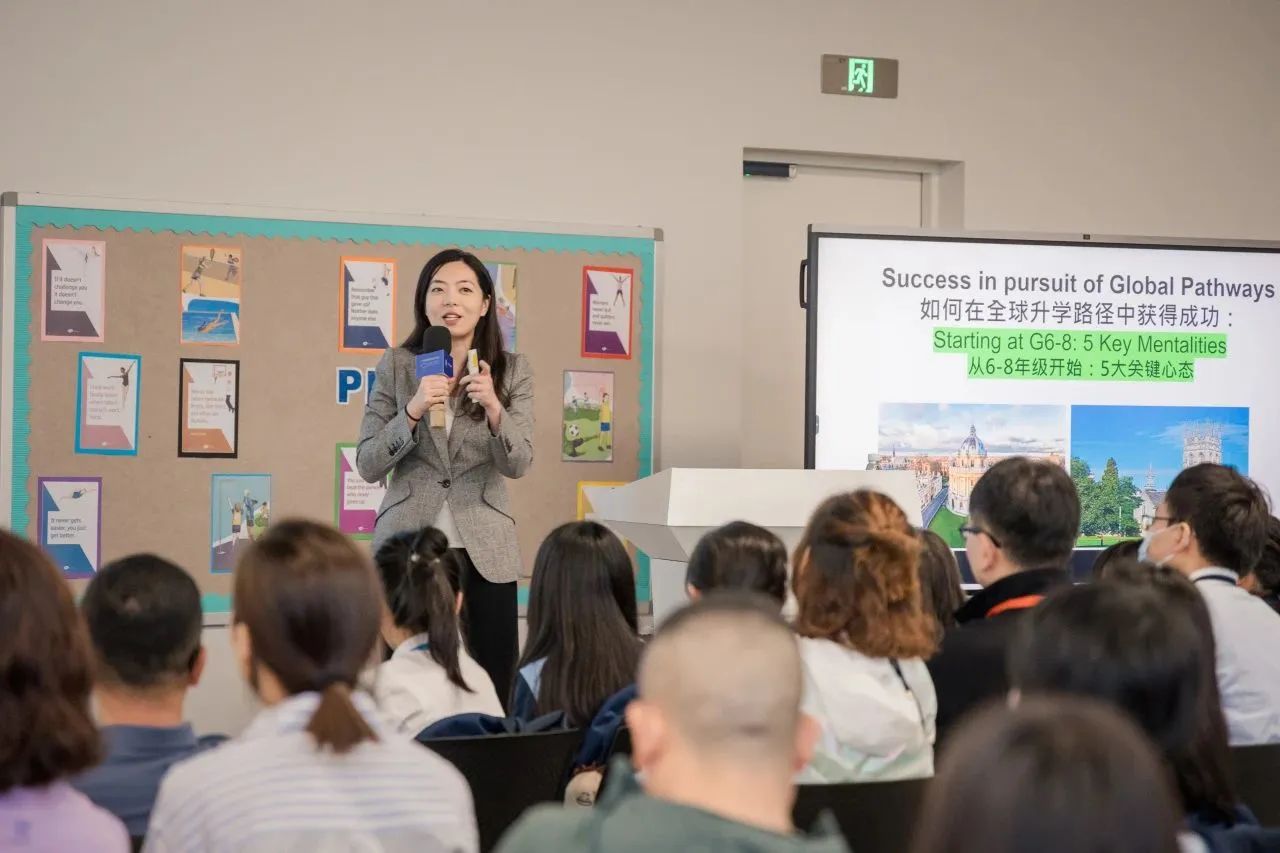
Drawing upon her own successful academic journey and extensive experience in university counselling, Ms. Ma succinctly outlined the "Five Key Mentalities for University Pathway" at the Junior Secondary school level. She elucidated how the school’s QUEST programme serves as a cornerstone for providing Junior Counselling support to students and their families from G6.
No.1: The T-shape Candidate
Ms. Ma shared that, in addition to academic performance, admissions officers at top universities worldwide comprehensively assess each student's ability and development potential through personal statements, letters of recommendation, interviews, etc. This approach aims to select applicants who best match the institution and their chosen majors.
From a regional perspective, universities in Asia, the UK, Australia, etc. pay significant attention to academic depth and set minimum academic requirements for different majors. For instance, to apply for undergraduate Economics at Cambridge University, excellent Maths and English grades are essential. It’s a MUST to receive A* in A-Level Maths, and an A* or A in Further Maths. Furthermore, English proficiency should be at least an IELTS total score of 7.5 or a TOEFL score of 110.
Colleges and universities in the U.S. and Canada place greater emphasis on a student's personal experience, character traits, and extracurricular activities, highlighting comprehensive and complete development of an individual. Ms. Ma illustrated this by sharing the story of a renowned Olympic champion who successfully applied to Stanford University. The champion's diverse extracurricular activities and participation in charity projects showcased how developing a wide range of personal hobbies, interests, leadership skills, and practical social experiences can enhance a student's application.
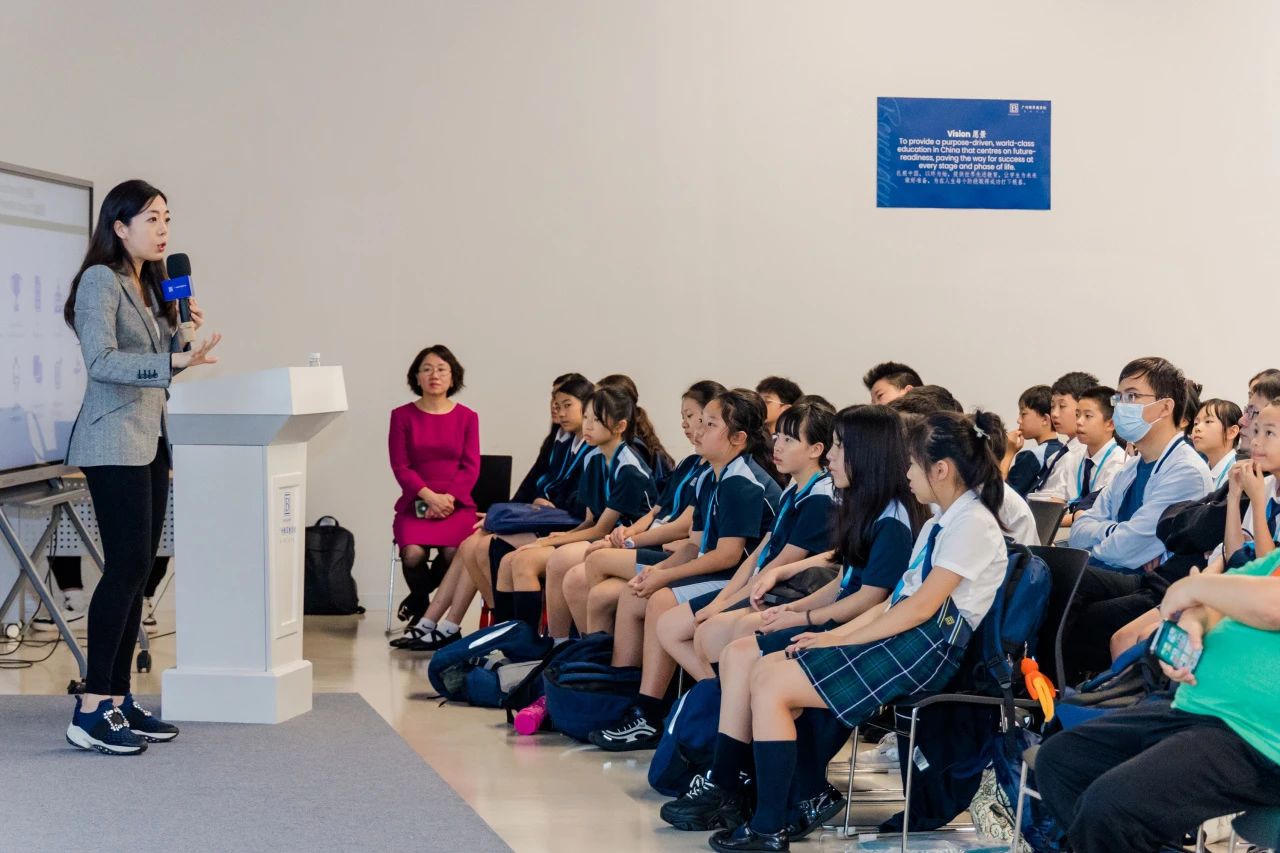
BBSG places significant emphasis on the development of 'T-shape Candidates', focusing on cultivating well-rounded students with a diverse range of abilities and perspectives who continue to invest in their academics and areas of expertise. The school's Enrichment Programmes cover academics, science and technology, traditional culture, art, music, and sports, taught by both BBSG teachers and external professionals. Individual counselling is provided through the QUEST Programme and university counselling. Throughout the school year, students can choose and concentrate on their interests, explore various enrichment programmes, and identify their strengths and future directions.
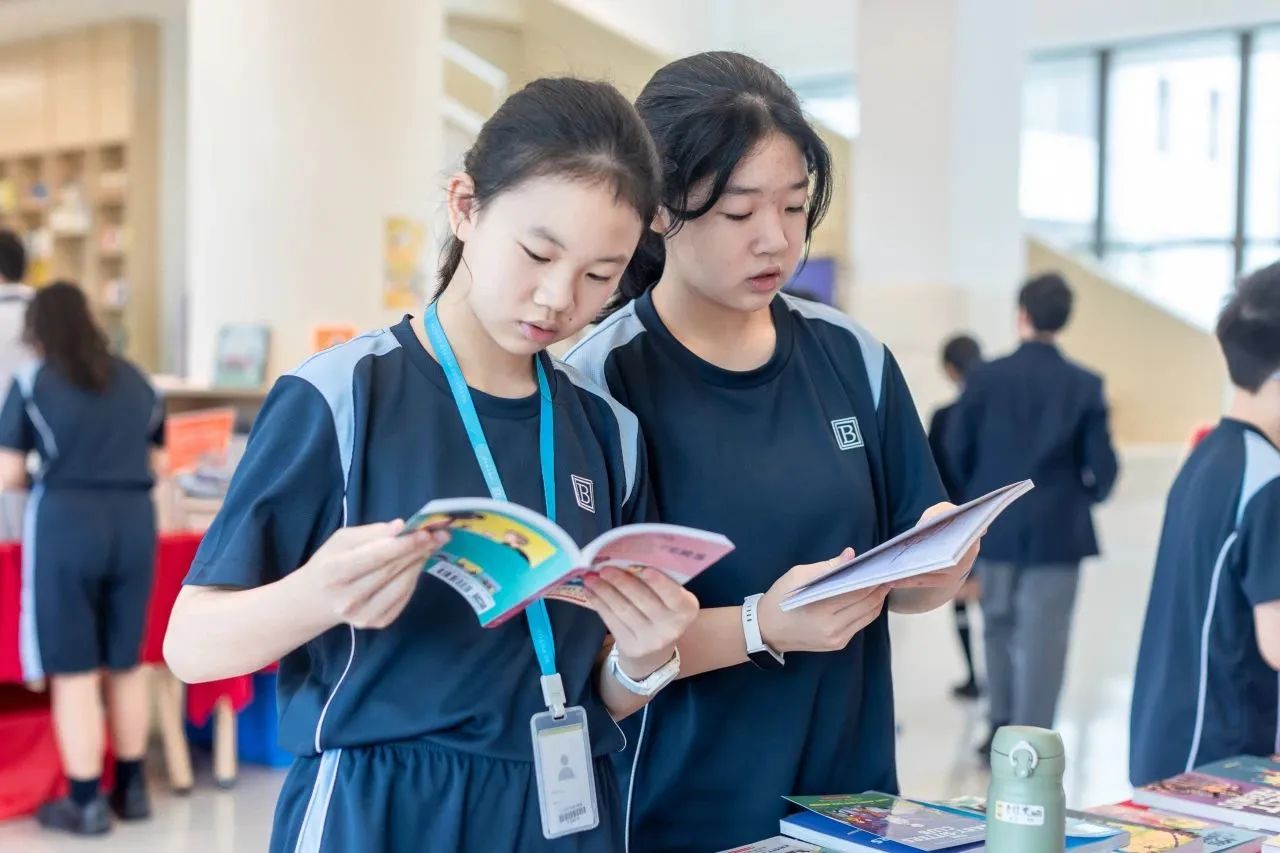
NO.2: Prepare Early for the Luxury of CHOICE
Success doesn't happen overnight. 'Time' is a key point that Ms. Ma has emphasised many times during her presentation. She has specifically outlined several areas that need the most time for students' families to plan and build upon:
Re-selecting or re-studying subjects
Whether it is IGCSE, A-Level, AP, or IB courses, the selection and combination of academic subjects need to align with the individual's abilities, requirements of intended university and majors. Choosing the wrong subjects may lead to retake exams, consuming valuable time.
Improving English Proficiency
The ability of non-native English speakers to learn and communicate effectively in English is a crucial factor that most overseas universities consider.
Building the Personal Brand
Exploring and developing personal interests and advantages demands dedicated time and efforts. In the competitive landscape of university applications, the answer to whether a university admissions officer will value a student who embraces a particular hobby for three months or one who has demonstrated consistent involvement in the same interests for three years is self-evident.
Applying to Colleges in Different Regions
Many students may not have a specific interest in the location of the university and will consider various destinations. Application requirements for different majors vary by regions and schools, as do the documents that need to be submitted.
Ms. Ma aims to inspire students and parents to commence planning the university pathway right away, preparing step-by-step, and continually assessing and reviewing progress. This approach enables students to take more initiative in choosing their majors, schools, and destinations, ensuring they don't miss out on the opportunity to realise their dreams.
NO.3: No Child Left Behind
"No Child Left Behind" is not only Ms. Ma's educational philosophy but also the support that BBSG strives to provide to each and every student.
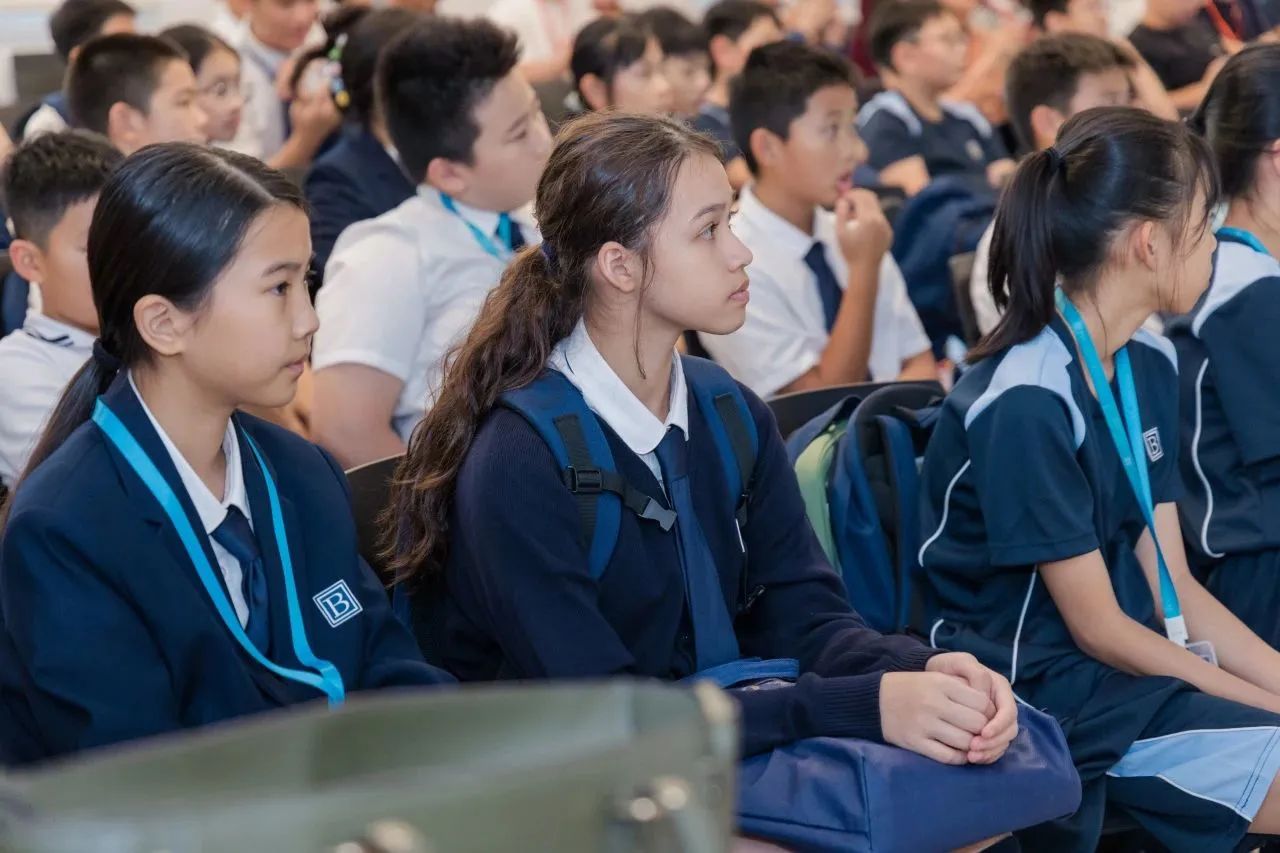
Ms. Ma shared three examples of students she has mentored, all of whom have achieved success in their respective fields by charting their development paths based on their basic ability levels.
A student with a weak academic foundation (graded C and D) and limited independent thinking ability was admitted to a Top 3 architecture school in the UK by discovering his passion and aligning it with his major, rather than relying on blind tutoring.
A student with average grades and from a normal family gained admission to a Top 30 university in the U.S. on a full scholarship by actively participating in extra-curricular activities (ECA) and shaping his unique personal advantage.
A top student selected subject combinations and a part-time job as an antique store clerk successfully combined academics and ambition to secure admission to Oxford University's Humanities program.
In these stories, the role of schools and educators is to "diagnose" and guide so that each student can find the most suitable path for their own development. This approach aims to fully unleash their self-motivation and passion for learning, enabling them to enter the university of their choice.
No. 4: Behaviour and Values Matters
Ms. Ma presented another inspiring case, opening up a new direction for students and parents.
A top student at a leading boarding high school in the United States, boasting excellent grades and a diverse range of interests, found himself in a challenging situation. Despite his impressive record, which included leadership roles in the student council and various clubs, he faced expulsion in the semester preceding his college application due to inappropriate remarks.
In the modern world, where information flows more conveniently and efficiently, students must exercise proper judgment and discernment in managing the information they receive and convey in their daily lives. As advocates of future-ready complete education, BBSG places significant emphasis on school discipline and moral education, with a focus on cultivating talents with "moral integrity." The objective is to assist each student in forming a correct value system and learning to be accountable for their actions and words. This aspect is not only a consideration for interviewers at each stage of the education process but also a marker that will impact every child throughout their life's journey.
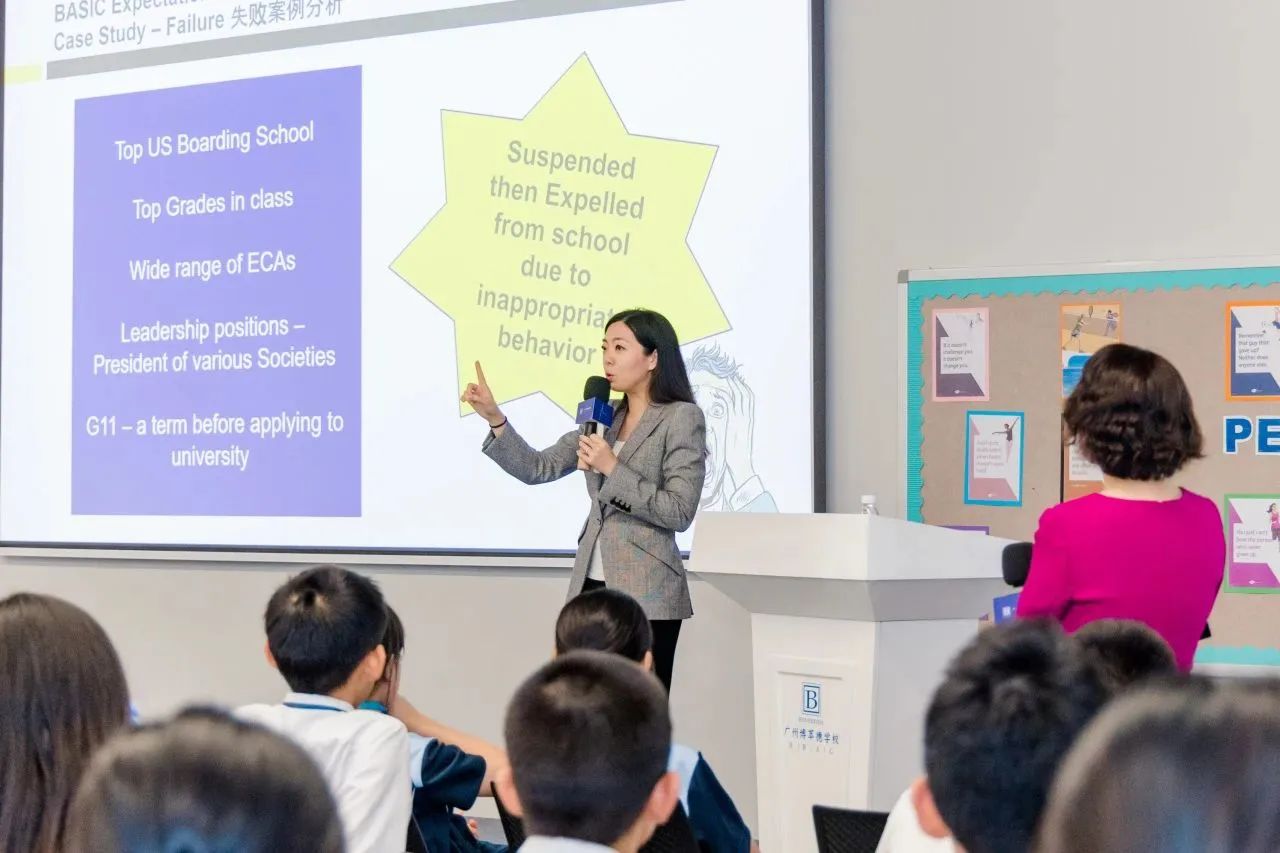
No.5: Bite-size Goals
There are several crucial dimensions to consider when planning the university pathway, including whether the subjects in which you excel align with your aptitudes, the proficiency of your English language skills, identification of your strengths and skills, and whether they align with the admission criteria of your target universities and majors. Continuous efforts are required to plan, prepare, and enhance students' personal competitiveness across various dimensions in a targeted manner.
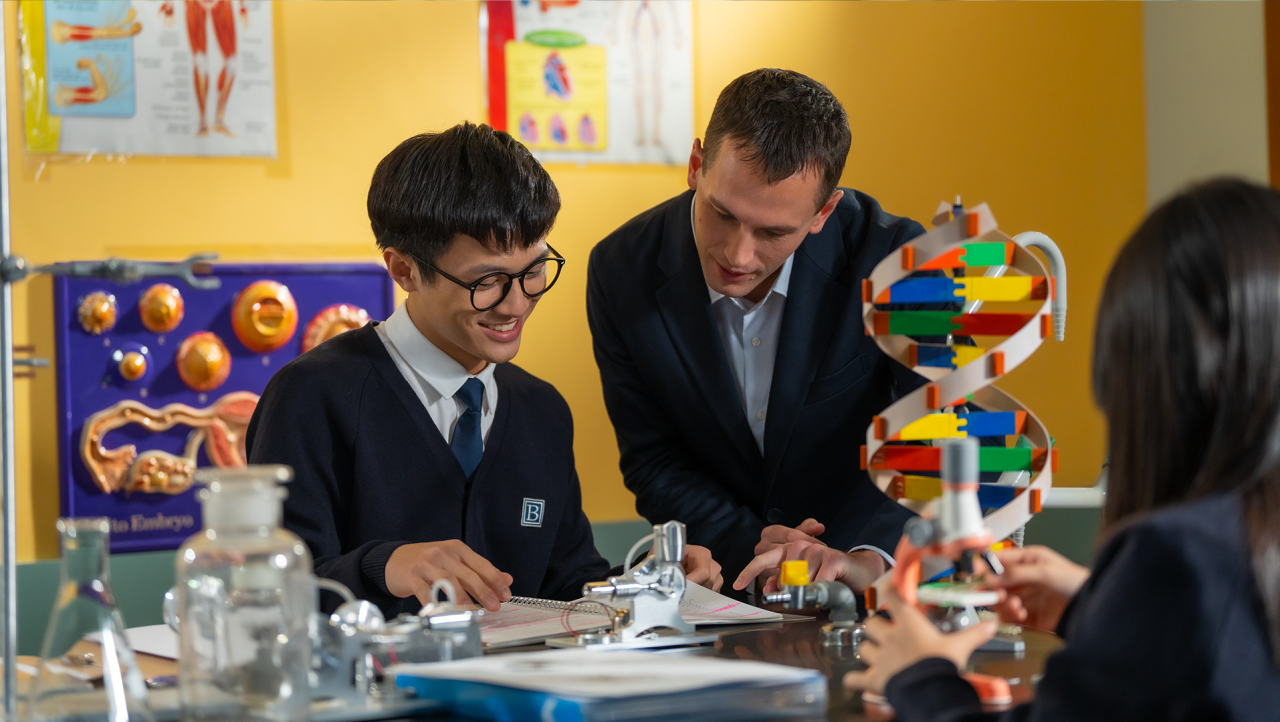
Based on her past experiences, Ms. Ma has observed that many students begin preparing in G11. She believes that for students who are not yet clear about their direction or whose personal strengths are not apparent enough, it would be better to start to plan in Grade 6. This involves gradually accumulating small, feasible goals.
After the meeting, then first bite-size goal for students and parents inGrade 6 to 8 was to fill out a questionnaire, so that the school willbe able to understand more about each student's personality, attributes, experiences, as well as their family's initial plans and expectations. This supports the one-on-one counselling a lot, utilising the QUEST Principles to set bite-size goals for each term and key academic milestones throughout the school year.
"Opportunity comes to those who are prepared. We aim to collaborate with families for proactive planning. After a few years of preparation, students will be well-equipped for the opportunities that come their way," remarked Ms. Ma.
University Counselling at BBSG
Leveraging scientific data tracking and quantitative analysis, the BBSG's signature QUEST programme offers support to studentsin academic excellence, extracurricular activities, university counseling, and career development. Students can clearly define their learning goals, explore their interests and strengths, and lay a solid foundation for their future pathway.
Thanks to the support of our strategic partner, CTFEG Education Group (CTFEG), BBSG's university and career counselling team collaborates closely with ARCH Education on data collection, quantitative analysis, and one-on-one counseling on different stages of a student’s education journey. This collaboration aims to better assist both students and parents in making decisions that better match the individual development.
Join us in our Secondary School Information Session on 10th December and learn more about our QUEST programme. Alumnae representatives of the Benenden School in the UK will be with us on the day and share their stories with you.



